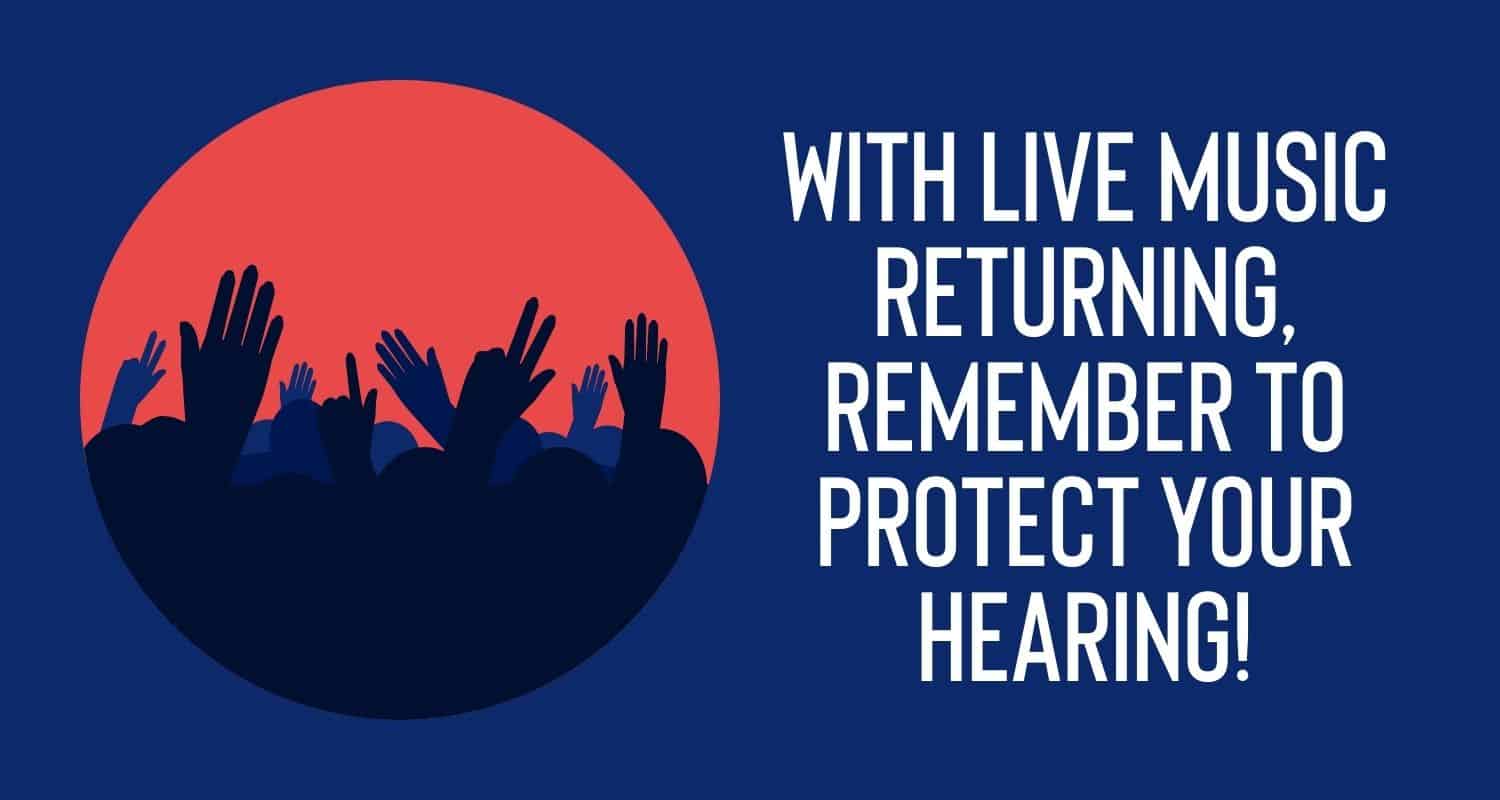
As concerts and live music are slowly making their way back into our social lives, it is important to protect your hearing. In the midst of the ongoing pandemic, live music shows were canceled for quite some time. But as social life and venues are opening back up, you may have upcoming plans to attend a show. While this is exciting, it is important to take important safety precautions to protect your health.
In addition to safety measures to reduce exposure to COVID-19, it is also important to protect your hearing health. Concerts are a primary way people are exposed to hazardous levels of noise that can damage hearing. So implementing a few strategies can significantly mitigate the impact of loud noise and reduce your risk of affecting your hearing.
Impact of Loud Noise on Hearing
One-time or regular exposure to loud noise can damage integral components of the auditory system – the sensory system for hearing. Specifically, loud noise can desensitize the highly delicate hair cells in the inner ear. These sensory cells send auditory information to the brain which is then able to further process sound and assign meaning which is how we are able to understand what we hear. Loud noise can cause hair cells to lose sensitivity, becoming increasingly vulnerable to dying. This prevents them from performing their critical function, leaving the brain with less auditory input. The brain then struggles to process and understand sound, producing hearing loss.
These hair cells, unlike other types of cells we have, do not regenerate. Humans are born with all of the hair cells in the inner ear that we will ever have. There are no medical treatments that can correct any damage or replenish these cells. This means that any damage they experience is permanent which leads to chronic noise-induced hearing loss. Fortunately, this type of hearing loss is 100% avoidable, and knowing how loud is too loud is a key way to reduce your risk.
How Loud is Too Loud?
Though you may be thinking that you have to be really close to the loud source of sound or that it has to be on the level of fireworks, there is actually a wide range of everyday noises that can damage hearing – including noise levels at a live music show. Sound is measured in decibels and noise above 85dB can be hazardous for hearing health. This is the equivalent of a noisy restaurant during peak hours, busy city traffic, or a hairdryer.
Experts suggest that we can be exposed to sound at 85dB for 8 hours a day without damaging our hearing. But for noise that exceeds 85dB, the exposure time should be drastically reduced. According to the Occupational Health and Safety Administration (OHSA), exposure time to noise above 85dB should be reduced by half for every increase of 3 decibels. Their guidelines for safe listening include:
- 85dB: 8 hours
- 88dB: 4 hours
- 91dB: 2 hours
- 94dB: 30min
Attending a live show can easily expose you to high levels of sound. Concerts can actually reach anywhere between 100 -120dB! At 100dB, the safe exposure time is around 7 minutes and noise levels nearing 120dB are not safe for listening at all. So if you are attending a concert, it is incredibly important to take precautions to mitigate the impact of such high levels of noise.
Tips to Protect Your Hearing
There are several useful and simple ways you can protect your hearing. A few things to implement, especially if you plan on attending a show soon, include:
- Wear hearing protection: this can include headphones, earbuds, or earmuffs which provide a physical barrier for the ears. This reduces the amount of loud noise you absorb. Different forms of hearing protection are commonly sold at music venues. Earbuds are also highly portable so you can carry them with you and wear them during breaks throughout the show.
- Take listening breaks: If attending a live show soon, be sure to take short breaks to give your ears and brain a break from the loud noise exposure. Live shows typically have intermissions so utilize this time to go to less noisy areas.
- Have your hearing tested: be sure to have your hearing tested regularly which establishes a helpful baseline of your hearing health. This also identifies your hearing needs and informs treatment options that can best meet those needs.
Truly enjoying a show does not have to come at the expense of your hearing health! Practicing safety measures can significantly protect your hearing health and still allows you to have a great time. An annual hearing test is a great way to ensure that you’re hearing at your best. Contact us today to learn more about safe hearing health practices and to schedule a hearing test.
